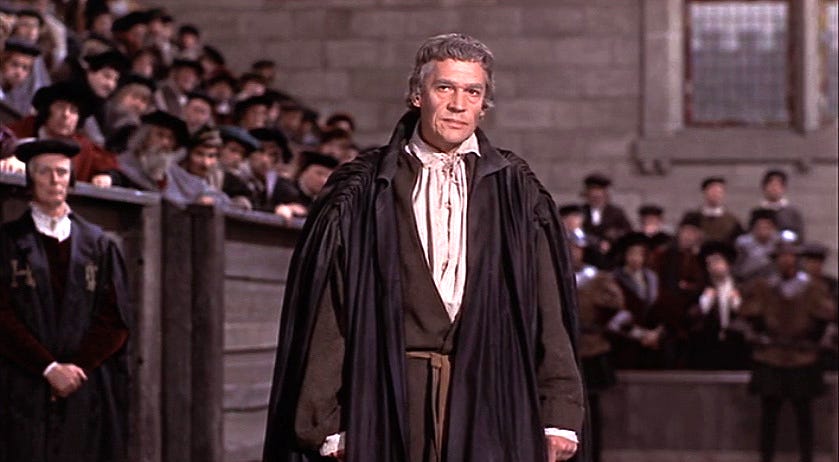The Man for All Seasons
On truth, magic, and More
This post is reserved for paid subscribers. My year-end $30/annual subscription sale continues for anyone interested in supporting my work. Thanks for reading! If you’re interested in browsing other pieces I’ve written about literature, click here. Many of them are currently reserved for paying subscribers but will be unlocked for you with an upgrade.
This week, I had the great fun and privilege of guesting on National Review’s Great Books Podcast, hosted by Hillsdale professor John Miller. When John asked me what Great Book I wanted to cover, I threw out a smattering of titles, but we settled on one of my all-time favorites, which actually isn’t a book but a play—Robert Bolt’s A Man for All Seasons. For anyone unfamiliar, this period piece tells the true story of Sir Thomas More, the Catholic statesman who became a martyr when he refused to sanction King Henry VIII’s illicit divorce. He was beatified in the 19th century and canonized as a saint in the 20th. “I die His Majesty’s good servant,” he proclaimed upon his death, “but God’s first.”
You might assume the playwright was a Christian. It’s mostly Christians who are preoccupied with the lives of saints, after all. But Robert Bolt was a notable exception. In his preface to the play, a remarkable piece of writing unto itself, he feels a need “to explain, perhaps apologize” for the fact that his hero is a Catholic saint, even though Bolt himself isn’t Catholic, “nor even in the meaningful sense of the word a Christian.” So why did More fascinate him so? Because, Bolt explains, Thomas More knew exactly who he was, and knew exactly what he could not bring himself to do. And Bolt writes in an age when the self has become “an equivocal commodity,” when there are vanishingly few things people can’t bring themselves to do. As a society, can we imitate More’s example without More’s God, without More’s faith? This is the great question that haunted Bolt, and continues to haunt thinkers like him today.



